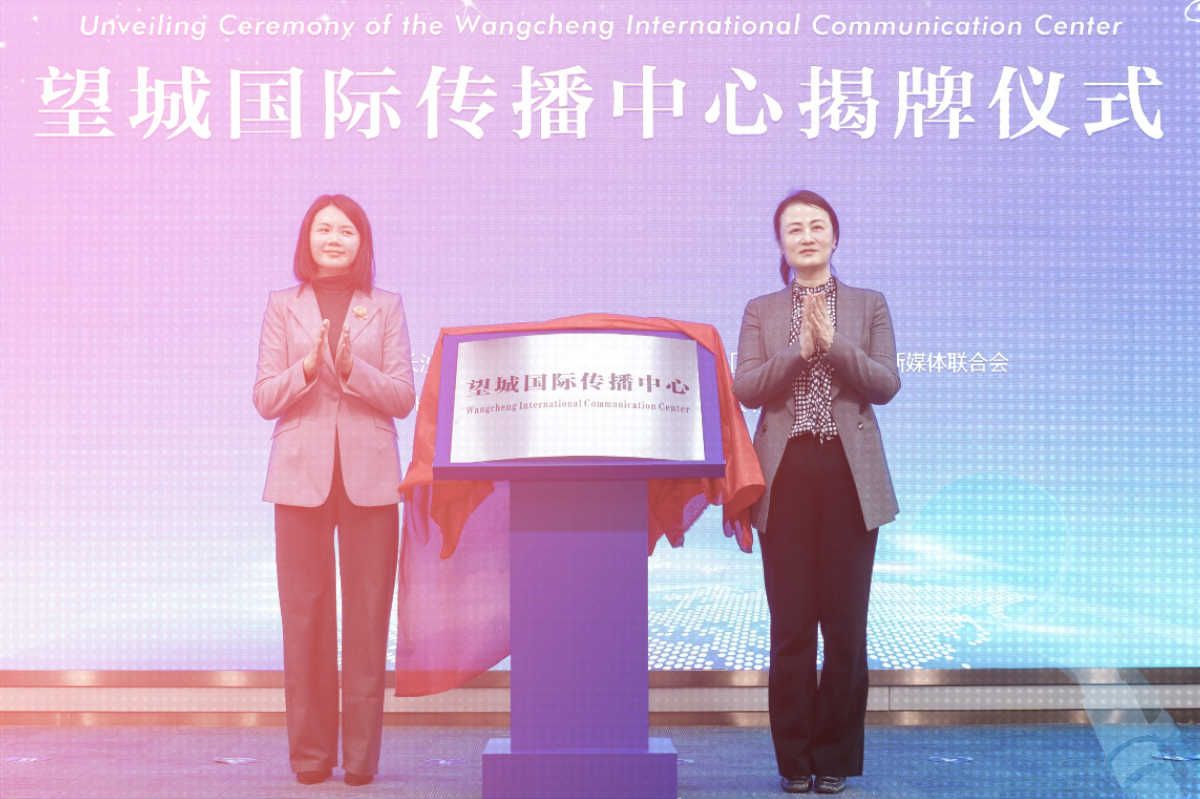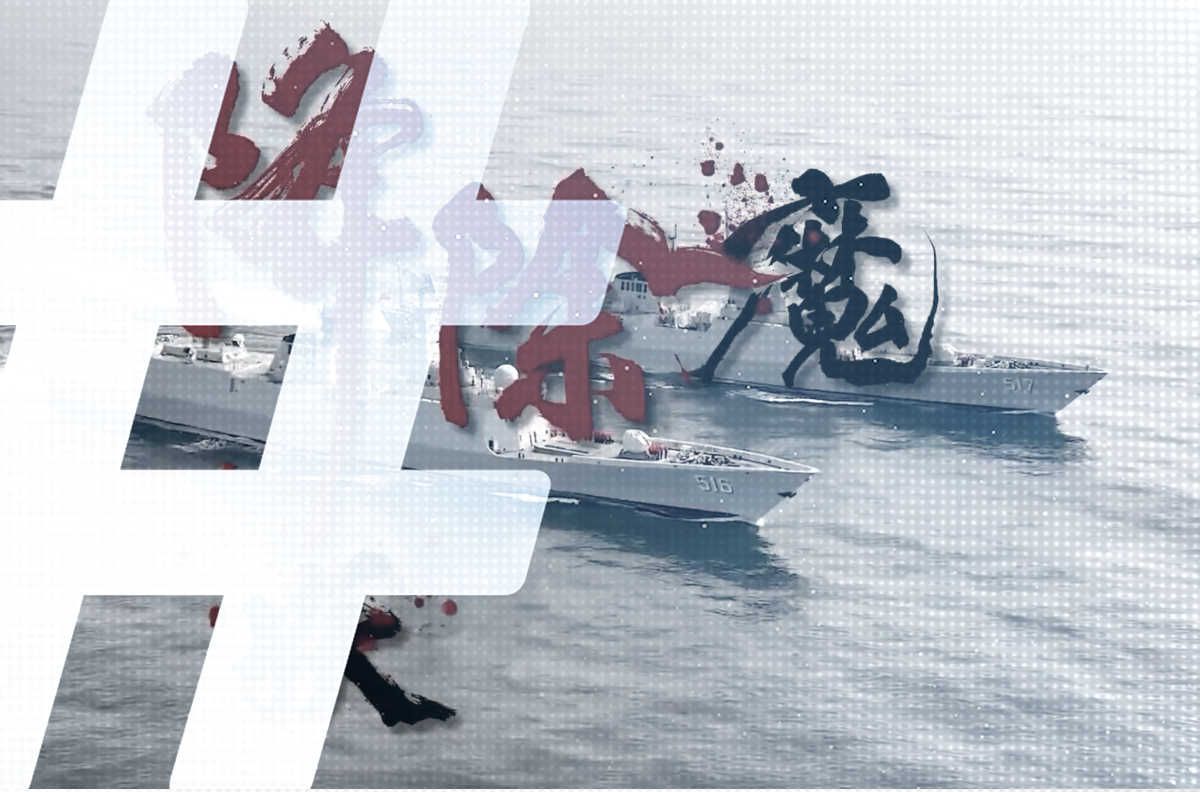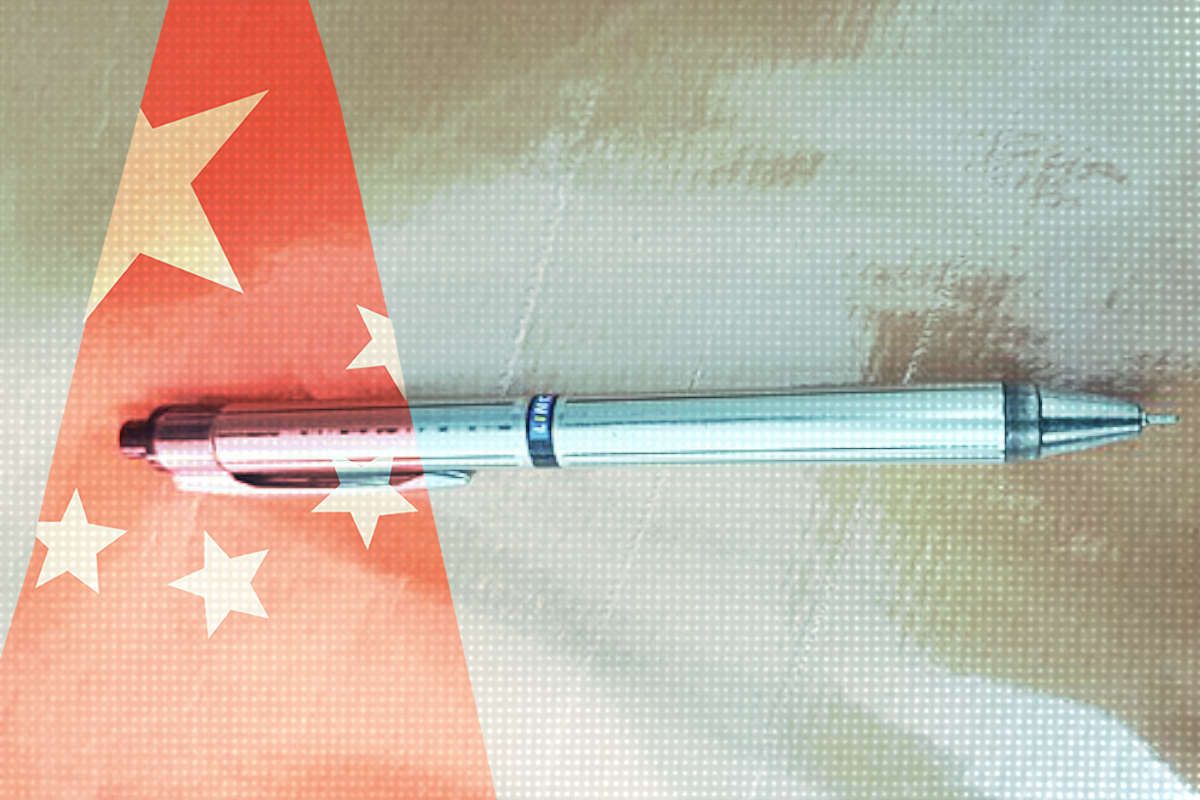Headlines and Hashtags
Chinese Journalist magazine: lessons in propagating a favorable image of the Party overseas
In recent weeks, Party officials have ratcheted up pressure on Chinese media to mind their political P’s and Q’s in the run-up to the all-important 17th National Congress. For Party leaders, the question of how China can put on its best face as international attention turns to the political session in Beijing now takes on fresh urgency.
This month, Chinese Journalist, a monthly magazine published by Xinhua News Agency that, along with People’s Daily’s News Line, is responsible for conveying the “management spirit” of state propaganda ministers, ran a piece about how media can convey to the world the great achievements of the Chinese Communist Party — by employing “the facts”, no less. [IMAGE: Screenshot of Chinese Journalist online edition].
The piece is written by two senior journalists with the “external division” of the official Xinhua News Agency, a division charged with generating China news for foreign consumption in a wealth of foreign languages.
A partial translation of the article follows. As readers enjoy the arguments, we encourage them to bear in mind that the authors are entirely serious:
“Propagating Well the Image of the Chinese Communist Party“
By Han Song (韩松) and Huang Yan (黄燕)
Chinese Journalist, July 2007
Concerning reports to the outside [world] surrounding the 17th National Congress, Xinhua News Agency’s external division (对外部) talks about the news topic of laying out the liberality and openness of the Chinese Communist Party, its closeness to and love of the people
Strengthening the directedness of news reports
In recent years, China’s progress in its peaceful development has been rapid, and it has involved itself in the process of economic globalization. A number of politicians in the West, however, continue to harbor prejudices. Stripped to its basics, this underscores deep differences in system and ideology. Given this situation, a major topic as we approach the 17th National Congress becomes how to propagate well the Party’s principles of leadership and its guiding policies toward the outside [world], how to propagate well the important position and function of the Chinese Communist Party, how to reflect well the good wishes of our country’s people to uphold harmony and their ardent love of peace.
These past few years we have done a number of good works, meticulously organizing coverage, for example, of the 85th anniversary of the founding of the Party [in China] and the 70th anniversary of the victorious Long March. Reports surrounding the 17th National Congress, it should be said, are of far graver import.
Every Party representative of every congress has had a substantial impact on the progress of China. Western public opinion is observing this [process]. We paid a visit recently to a number of media and foreign people in the capital. They expressed a keen interest in the 17th National Congress, and wanted to understand the actions of the Chinese Communist Party. Some foreign media have made contact with the Party School for interviews, and expressed excitement because restrictions on overseas media were relaxed on January 1 this year. In connection with the 17th National Congress, one issue of particular interest to the outside world has lately been: what does the Party intend to do once it has led the people of China on the path to mightiness? Related to this, how will the Chinese Communist Party meet the challenges that have come with economic and social development? How will China’s new top leaders handle relations with the world? Etcetera.
We are faced with the “China Threat” and “China’s Responsibility” theories of the West. Assessed objectively, these are questions of Western and Eastern ideology, and they have their origins in the negative effects in the West of the irresponsible comments of a number of cadres. China’s economic development has also brought the emergence of a number of new circumstances, such as trade disputes, environmental protection, workers’ rights. As for journalists, a number of problems are related to our lack of good faith in doing propaganda to the outside.
Speaking with the facts
In meeting the challenge of reports surrounding the 17th National Congress, the most basic thing is to speak through the facts. Of course, these facts must have newsworthiness, must be balanced and objective.
If, for example, we want to write about the Chinese Communist Party’s position and function, the achievements she has made, there are facts that speak directly to this, namely some predictions in the West (or we might call them “curses”) that have not come to pass.
Ten years ago, for instance, the West believed the Communist Party couldn’t run an economy. Clearly, we have made it around a number of turns, but now China has quite an economic track record. Ten years ago, for instance, the West believed we would make a mess of Hong Kong, and some people believe the Chinese economy would collapse before the 2008 Beijing Olympics. Takes these facts and place them side by side and this will be quite convincing.
And how can we express clearly that China’s development is an opportunity and not a threat? It’s not enough, I’m afraid, to simply resort to conceptual terms. We should tackle this by beginning with specifics. For example, people wonder where your military spending is going? … Just send someone to report from the most remote barracks, and let them see how poor our soldiers’ lives once were; write about how they raise their own pigs and grow their own crops behind their barracks. This is something I’m afraid American soldiers would find hard to imagine. So, a large portion of military spending has actually gone into improving the actual lives [of soldiers] …
There are more facts to talk about. For example, concerning the [Party’s] closeness to and love of the people, scientific development and democratic politics, there has been no little progress over the last five years, and this has also been a catalyst for economic development. According to one standing committee member of the National People’s Congress, when American representatives made a visit to China and witnessed grassroots elections, they were hugely surprised and said they had never imagined China would have that kind of democracy. Therefore, we can offer specific reports on elections as a part of internal Party democratization (党内民主), including new developments in grassroots building of the Party.
Reports can also be done on the topic of harmony, such as that this is the most welcomed political buzzword since the 16th Party Congress. The raising of the concept of harmony [by President Hu Jintao] itself is progress. When our top leaders make policy decisions, they listen more and more to the opinions of ordinary people, including directly, face-to-face. Also, non-Party people are playing an ever bigger role on the Chinese political stage, etcetera. These are all facts …
Write human stories about figures in the Party
News reports must have people. The portrait of a ruling party is drawn through specific quotes from Party members.
Here is an example: When Party Chairman Hu Jintao paid a visit to Boeing while in the United States, he received a baseball glove from one of the Boeing employees and gave him a “Western style” hug, upon which the American worker wept, having never imagined Chairman Hu would give him a hug! Based on his being “reared” on Western media, this ordinary American never dared to believe that a Communist Party member would show such a warm and human side …
[Posted by David Bandurski, July 18, 2006, 11:24am]





















